
Setbacks & Fightbacks #2: Morecambe & Wise on TV
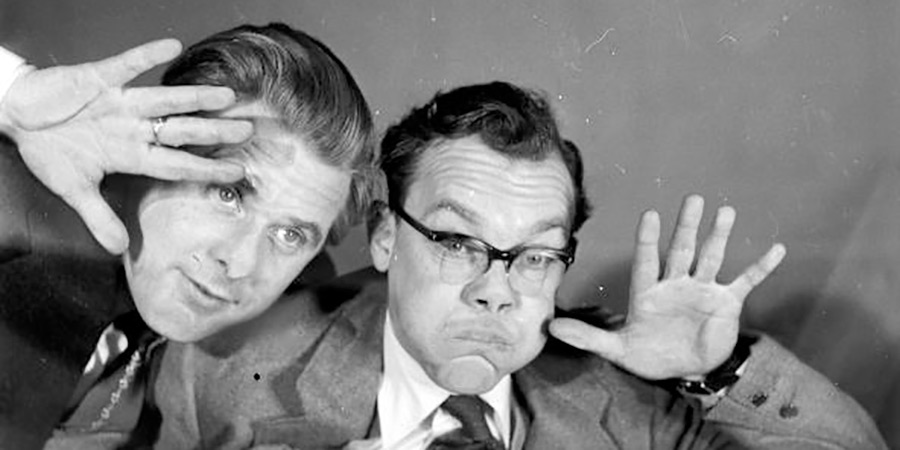
When one thinks of Morecambe & Wise, one tends to think only of their success: the most popular comedy double act in British history, one of the most dominant acts on television during the Sixties and Seventies, and one of the best-loved acts the country has ever had - in short, a genuine national institution, in an era when one really had to earn such an honour. Before they mastered the medium of television, however, the box in the corner almost knocked them right out of the picture.
It happened in the mid-1950s, at the very moment when they were first daring to dream that they might well be on the brink of a major breakthrough.
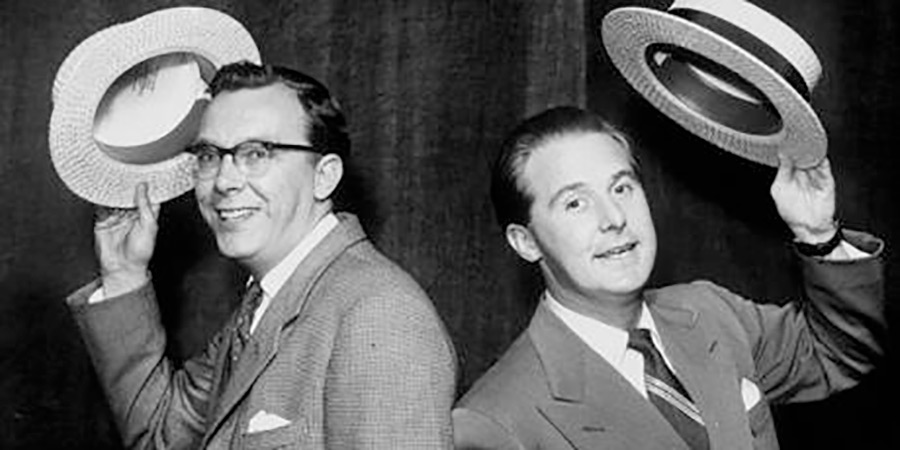
They had been performing together since the early 1940s, working their way up the bills on the variety circuit, and by the early 1950s had earned their own show on the BBC's northern regional radio (You're Only Young Once). There had been the odd crisis of confidence along the way, and one or two minor setbacks, but, by this time, there was good reason to feel that they were making real progress.
This feeling was further reinforced towards the end of 1953, when the BBC offered them their own series on television - consisting of six episodes, to be shown on a fortnightly basis, as the climax of each evening's entertainment. They were, of course, delighted to accept. If this went well, they realised, it would transform them more or less immediately into national stars.
The good news was announced at the start of the following year. The coverage of the commission was positive, with TV columnists remarking, somewhat generously, that the double act had already 'achieved a large measure of popularity with viewers' through their previous guest appearances (in such shows as Variety Parade, Stars At Blackpool and Face The Music). There were similarly encouraging comments about the performers who were booked to support them: the singers Alma Cogan and Ray Buckingham, and the close harmony quartet of Four In A Chord.
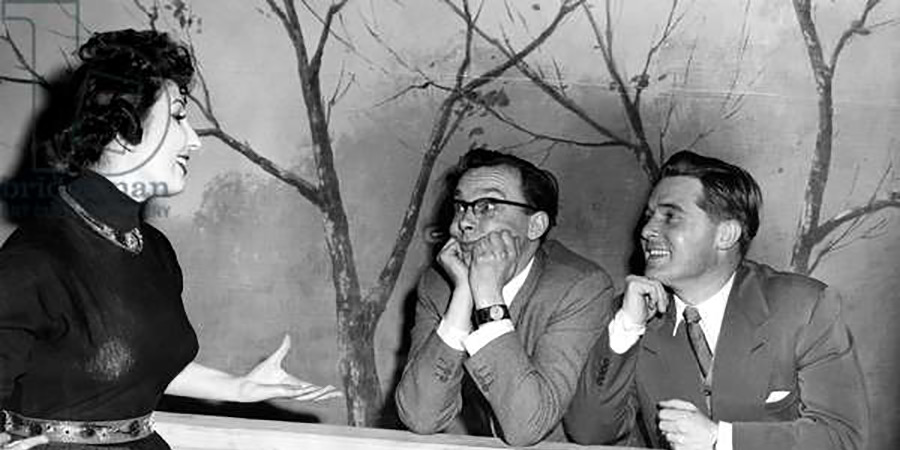
Morecambe & Wise themselves were also feeling positive about the production team the BBC had assembled for them. The relatively experienced Bryan Sears (in those early years of television, no one was that experienced, but he had worked in the medium regularly since taking the helm of Frankie Howerd's 1951 series Here's Howard) was formally assigned the role of overseeing the series, but most of the actual direction duties were to be delegated to a trainee called Ernest Maxin. Thirty-years-old, the multi-talented Maxin - he was a talented pianist, singer, dancer, actor, composer, arranger, conductor and choreographer, as well as quite a handy amateur boxer - had been in show business since the age of about seven, touring in a minstrel show, and possessed an infectious enthusiasm for the spectacle of entertainment.

Morecambe & Wise bonded with him right from the start (and, indeed, they would go on to work with him again during their celebrated shows in the Seventies). His relentless energy and positivity, combined with his ability to identify with those in front of the camera as well as those behind it, made them think of him as more of a collaborator than a mere boss. With him in charge, they thought, they could relax and grow into the project.
They also appeared to be happy enough with the team of writers whom Sears and Maxin had assembled. Len Fincham and Lawrie Wyman were set to be the unofficial heads of the set; having already written together for a number of radio and TV shows, they were regarded as two safe pairs of hands to supply the comic substance with which Eric and Ernie could work. Other writers sounded out to add to the core material included Denis Gifford, Tony Hawes, Maurice Rodgers and Alan Bain. There was, observers noted, a clear commitment to ensure that the show would be well-stocked with potential sketches.
The nearer the series came, indeed, the better the pre-publicity got. One previewer even predicted that the new show, which was to be called Running Wild, should 'help to pull TV out of the doldrums'.
It was all going to plan. Then came the punch in the mouth.

The first episode, which went out at 9.40pm on Wednesday 21st April 1954, was declared in the press to have been a failure. The critics hated it.
'Why on earth millions of viewers had to be given this stuff I just don't know,' complained one. 'I rate it as TV's worst effort for months'.
Another claimed that the show 'ran completely off the rails last night,' adding that 'it is a disgrace that the vast TV public should be given as its main mid-week show a piece of dated tomfoolery which would make many a seaside concert party blush for shame'.
A third judged it a 'flop of a show,' and, while ignoring any responsibility among the rest of the crew, blamed the two stars for the fact that 'their gags were weak [and] their sketches corny'. It was not something, the critic concluded, to which he, or many others, would be returning.
Each savage review, Eric Morecambe would later recall, 'felt like a slap in the face with a wet fish'. He sat at home with his wife, Joan, while Ernie sat with his own wife, Doreen, and both couples stared at the pile of newspaper critiques in a state of disbelief at the sheer viciousness of so many of them. 'I do not remember, before or since, such a barrage of ugly criticism,' Joan would say. 'It was almost as if there was a conspiracy to knock Morecambe and Wise on the head before they had even started'.
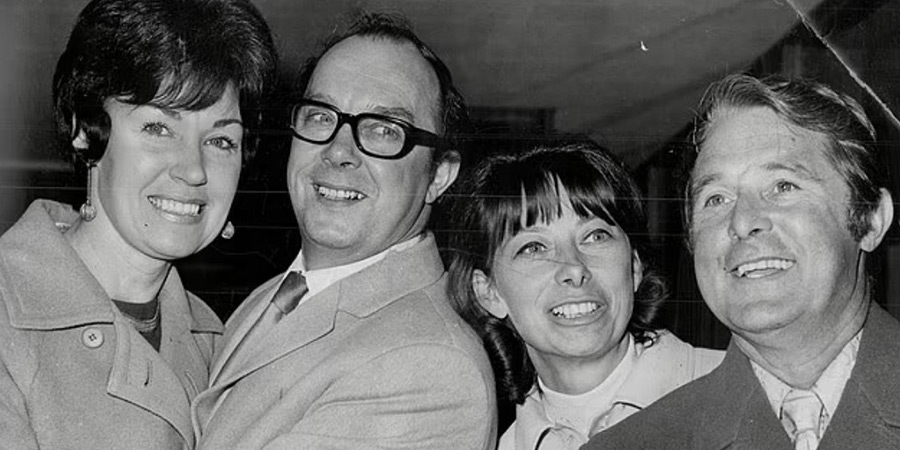
This, one has to remember, was happening when there was just one solitary channel on British television. Failure on this single unforgiving screen was thus felt to be failure in front of the entire viewing nation. The sense of humiliation was immense.
Then the weekend arrived and with it a second wave of damning disapprobation. Kenneth Baily, the TV critic of the Sunday People, ended his column with the following mock funeral message:

No Flowers
Definition of the week: - TV set: the box in which they buried Morecambe and Wise.
That was the one of the many cutting remarks that really did draw blood. Eric, especially, could not stop re-reading it - he kept returning to it over and over and over again, as if mesmerised into a masochistic ritual. In just one sentence, it seemed, to both of them, to have summed up the full extent of their perceived professional failure, a callously concise obituary marking their cruelly premature demise.
'We were both knocked sideways,' Ernie would later admit. 'Initial shock gave way to depression and a serious reconsideration of our future'. There were plenty of tears in their respective households, along with countless consoling hugs and some long and sad silences.

Eric's own dark mood was made even worse by an ill-considered phone call from his tough 'tell-it-like-it-is' mother back in Morecambe. 'What the devil are you two playing at?' she shouted down the line. 'I daren't show my face outside the house. We'll have to move. We'll have to change our name'.
Eric could usually rely on his far more naturally optimistic partner to drag him out of any deep trough of despair, but this time even Ernie seemed out for the count. The shock and the strain of the past few days had seen him break out in a rash of nervous boils, and his face and neck were now covered in a patchwork of ointment and lint, making him look like some bewildered escapee from a burns clinic.
Both men's homes had become like places of mourning. Every head was in hands.
'Those critics,' Eric would reflect bitterly, 'they broke my heart, they broke my wife's heart, they broke my partner's heart'.
There was not even any respite once they were back with their colleagues in the studio at the BBC. The routine internal reports about the opening show, which had now landed on Bryan Sears' desk, only added to the collective mood of gloom.
According to the BBC's Audience Research Department, only forty-eight per cent of the potential viewing public had bothered to watch the programme - well below the average at the time of sixty-one per cent for recent mid-week entertainment shows - and the viewing panel used to assess the overall quality of the production had generally reacted negatively.
'A fair number' of the panel, it was reported, had said that neither Morecambe nor Wise seemed on form, while others found their material very weak and 'corny in the extreme'. Most of the panel, the report went on, expressed the opinion that 'the show lacked "pep" and "punch" and complained that, what with the "hackneyed situations" and "corny" dialogue, the whole programme seemed tame and distressingly unoriginal'.
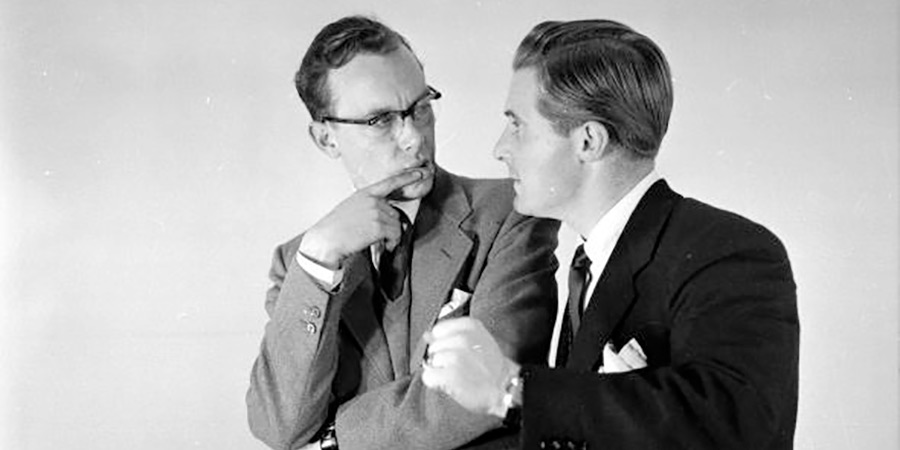
The Reaction Index - a figure based on the results of the questionnaires completed by all members of the panel - was just forty-three: 'a very poor figure,' the report concluded, 'well below the average (63) for television Light Entertainment programmes'.
All of this was being monitored by the top executive in this area of the BBC's output: Ronald Waldman, the Head of TV Light Entertainment. He knew that, at this early stage in the series, what was required was a concerted show of positivity rather than panic.
Waldman thus wrote to Cecil McGivern, the Controller of Programmes, to assure him that everyone involved was determined to 'do all we can to improve [the show],' adding that he was confident that the series 'will improve,' with both the producer and director and the two stars already working hard to put things right. McGivern, a somewhat dour and impatient man, was far from convinced, and in absolutely no mood to endure any more bad publicity over the programme, but, in the absence of having a ready-made replacement, he agreed, at least for the time being, to leave them to it.
Waldman then proceeded to deliver a pep talk to the production team. He stood by them, he said, he believed in them, but changes would have to be made, and standards raised, immediately.
Sears and Maxin duly held an urgent crisis meeting of their own to assess what changes they could, and should, focus on first. Better material, they quickly agreed, had to be their top priority.
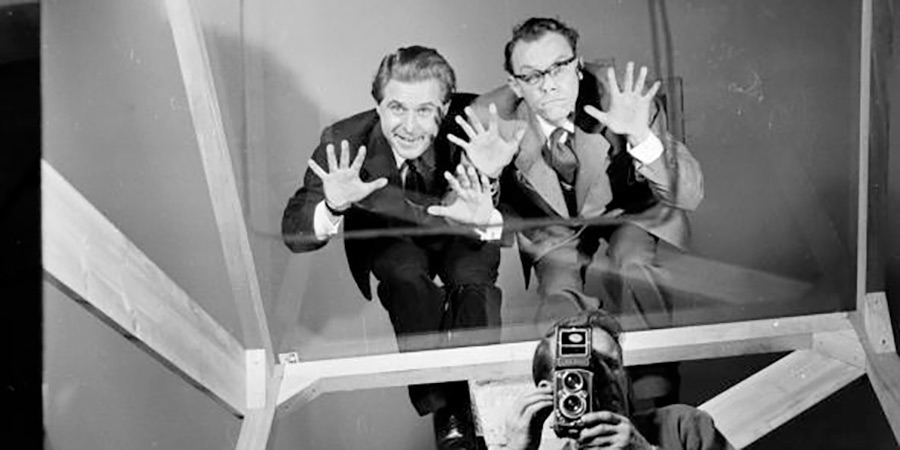
Ronnie Hanbury, an experienced comedy writer, was summoned with the instruction, as an informal script doctor, to bring greater coherence and quality to the sketches. Sears also started working more closely with a shell-shocked Maxin on devising more effective musical routines.
Ronnie Waldman, meanwhile, accepted that he had some kind of duty of care for his two desperately demoralised stars, and so held an informal meeting with them in his office, doing his best to lift their spirits and reassure them that they still had the BBC's backing. It was only one show into the series, he told them, many popular programmes had begun with a shaky start, and there was still plenty for which to play. There was much patting of backs, and several forced smiles.
It was at that point, however, that he realised just how hard his double act had really been hit. 'We're scared to death,' Ernie Wise, still covered in various spots of ointment and bits of lint, could not stop himself from saying out loud. 'If it's all the same to you,' he added, 'we'd like to pull out'. An ashen-faced Eric, standing by his side, looked ahead glumly and nodded in agreement.
Waldman was shaken, and genuinely concerned about how anxious to quit the two young men now seemed, but he made it clear that he was not prepared to let them leave. 'I'm going to hold you to that contract,' he insisted, looking them straight and strong in the eye, 'not because I'm being bloody-minded or because I can't find anybody else to do me a half-hour comedy series every fortnight - most young comics in Britain would give their right arms for a chance like this. No, I'm doing it because you are first-rate TV comedy material'.
That, then, was that - they would have to continue. Still pale-faced, but now straining to show their appreciation of the support, they left his office to return to work. 'Stick it out,' he shouted to them as they departed down the corridor. 'I have faith in you'.
There was not to be, however, any upturn in their fortunes. Two weeks later, on 5th May, when the second instalment was shown, there was a whole new critical onslaught. 'Although a six-minute set by Morecambe and Wise can be reasonably funny,' one reviewer remarked, 'they have no right with television costing £2,000 an hour to waste 30 minutes with juvenile antics'.
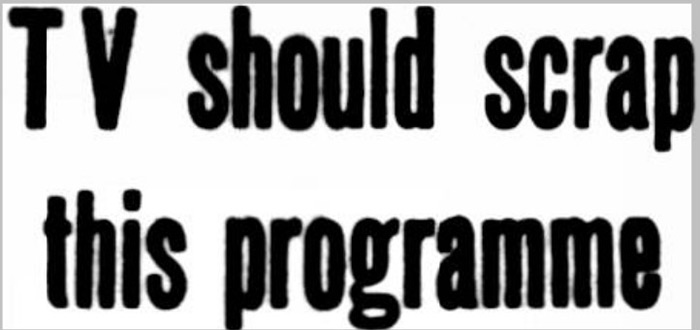
Another confided: 'The Morecambe and Wise show Running Wild had its second try-out on TV last night. The first programme, a fortnight ago, was criticised so much that TV officials said: "We are tearing it apart and putting it together again". It's a pity they bothered. TV should drop this show'.
The third edition, on 19th May, did nothing except provoke more of the same. 'It was as unfunny and original as the [previous ones],' bemoaned one reviewer.
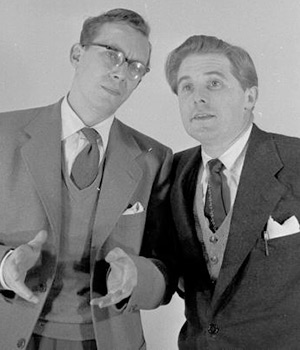
The fourth, on 2nd June, which featured - presumably from desperation - a Laurel & Hardy-style custard pie fight, fared no better. 'Their antics,' groaned another critic, 'caused me instantaneous melancholy. Why can't we, I asked, get a good comedy show on TV? Why have we to suffer these crudities which won't raise one single laugh?'
Once again, it was much the same elsewhere in the press. 'Some of the gags creaked so loudly that you could hear them coming,' opined another observer.
Arguably the most analytically excoriating review - which ought, rationally, to have stung far more than the glibly cruel People piece - came the morning after the penultimate show on 16th June. Written by Tom Pepys, it not only questioned the professionalism of the stars, but also the whole production team:
[If] Morecambe and Wise enjoyed themselves - or rather had as much discomfort as those who had not the sense to switch off Running Wild within the first three minutes - then they deserve our sympathy. They really do earn their money the hard way.
Wednesday's programme had nothing but dreariness. Perhaps the jungle-cum-South Sea island setting was a good idea as a background for the programme, but it remained only an idea.
Obviously no thought at all had gone into the programme, and it is fairly sure that this presentation did not have a producer: to be Irish, even if it had, he was no producer.
During Miss Cogan's song, those of us who could drag our eyes away from her by looking over her shoulder could see through the bead curtain Mr Morecambe strolling around smoothing his hair and wiping his spectacles - spectacles no doubt misted by tears of self-reproach.
For there was every need for self-reproach. The show was not under-rehearsed - it looked as though it had simply never been rehearsed. Morecambe and Wise were running so wild that they had us practically running up the wall.
The obvious sequel is a run right out of television and back to Saturday night smoking concerts.
Maybe the critique did hit home (the two performers, by now, certainly felt that the inexperienced Ernest Maxin, for all his 'good, strong, positive thinking,' was a little too out of his depth as their director, and, in his eagerness to be involved in every aspect of the production, had probably spread himself rather too thin), but, in truth, Morecambe & Wise, before that review had even appeared in print, had already made up their own minds. As soon as the fifth show had finished, they felt finished, too. Huddled together backstage, they talked, they weighed up their options, and they reached an agreement.
The following morning, on 17th June, Morecambe & Wise got in a car and drove off to hold a meeting with their agent of the time, Frank Pope, at his base in Panton Street in south-west London. Neither said very much during that journey; each knew that the other was utterly spent.
Once inside Pope's office, they got straight to the point. They simply could not go back in front of the cameras, they told him. They had suffered more than enough.
Pope knew that they meant it. He could see it in their eyes.
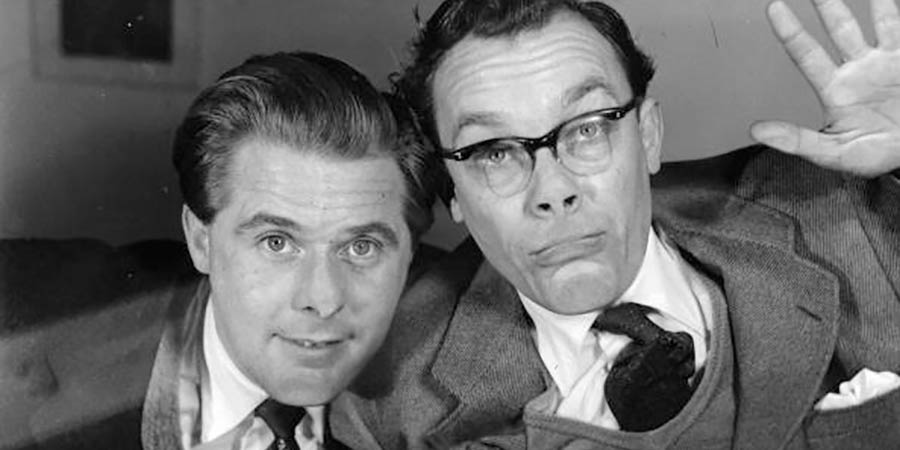
Extricating them from this miserable situation, he realised, was going to cause huge professional embarrassment for his clients and himself, damaging, or perhaps even destroying, their relationship with the BBC for the foreseeable future, but the potential personal cost of continuing, he accepted, simply seemed too great. The torture had to end.
Once the dejected pair had departed from his office, therefore, Pope sighed, summoned his secretary, took a deep breath, and started dictating a letter to Ronnie Waldman. In it, he explained that he was refusing to allow his clients to see out their contract. The previous evening's show, he said, had featured 'the worst performance I have ever witnessed my clients giving, not because of their inability, but plainly and simply because of the material etc. supplied for them to appear in was most unsuitable and inadequate'.
He was determined, he went on to write, that they should not be forced to 'jeopardise any further their reputation'. The consequence was that he was now demanding that the final show of the series be cancelled.
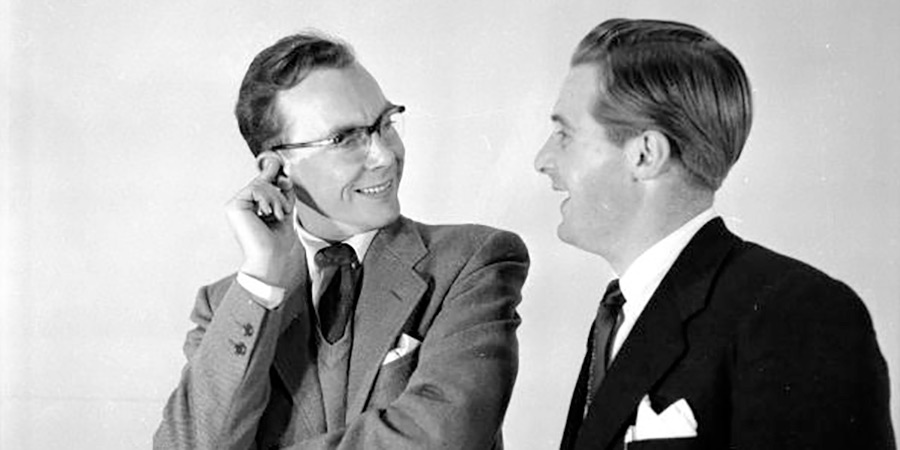
Ronnie Waldman was saddened but not entirely surprised to receive such a letter. A decent man, he, too, had been a performer before becoming an executive, and knew all-too well the emotional pain that came from a poorly-received engagement. If Morecambe & Wise needed more support, therefore, he was certainly ready to provide it, but he genuinely felt it would be wrong for them, as well as the BBC, to be seen to abandon the show. This, he believed, was one of those storms through which all of them needed to walk.
He thus wrote back to Pope immediately to explain why (with the help of some rather well-massaged data) he was going to stand firm on this matter:
Dear Mr Pope,
Thank you for your letter of today's date concerning Morecambe and Wise.
I must admit that I am at a complete loss to understand this letter since the reaction figures from our Audience Research Department have been rising consistently during the whole of the Running Wild series and the only national morning newspaper to carry a review of last night's programme mentioned that it continued to improve.
We have, as you know, provided Ronnie Hanbury to strengthen the writing on this series. Ronnie Hanbury proved himself with both Jewel and Warriss and Life With The Lyons to be a very good comedy scriptwriter; it would be a difficult to uphold your statement, therefore, that the Corporation have provided your clients with poor material.
There is also, of course, the question of the contract which remains in existence for the sixth and last programme series in thirteen days' time. From all points of view I think the decision you seem to have taken is a hasty and unwise one and I would most earnestly ask you to reconsider it.
Your sincerely,
Ronald Waldman
Pope duly backed down. Morecambe & Wise were trapped.
The final show, predictably enough, would be a dismal affair. Eric and Ernie, of course, were there, albeit under extreme duress, but there was no Alma Cogan - having been the only participant who had so far remained relatively unscathed, she had been allowed to move on to more attractive engagements - there was no improved script, and there were precious few laughs.
The following dialogue - from a Frankenstein spoof - was sadly typical of the standard of the material as a whole:
GIRL: What brings you to our humble village of Vasaria?
ERNIE: We're from BBC Television.
ERIC: Yes - Eurovision.
GIRL: Eurovision?
ERIC: You're-a-vision yourself!
The series went out with a whimper, which, in the circumstances, was probably for the best. None of those involved had any appetite (or nerves) left for any further flak.
Bryan Sears, arriving at his office the next day, was probably rather relieved to find that most of the critics had decided to leave the show to die a quiet private death. There was one more internal audience report with which to contend (it was not terrible, but definitely not encouraging, either), and then, at last, he was free to shut the production down.

He sent out a memo to the various heads of department, thanking them for their help. 'This was particularly appreciated,' he added, 'remembering that it was not the most successful television programme of all time, and [therefore your support] did much to help us through a very difficult period'.
Morecambe & Wise, meanwhile, had gone straight home as soon as the credits had rolled for one final time. There had been no words to share with anyone in the studio; nothing anyone might have said would have made much sense.
The BBC, in the days that followed, held a post mortem on this dead parrot of a comedy show, and the two verdicts that were reached were that it had failed so badly because (according to Sears) the stars had been 'too northern' and (according to Waldman) they had not quite been 'ready' to carry a nation-wide show. This was, quite patently, an incomplete explanation, as well as a somewhat disingenuous one.
The notion that Morecambe & Wise were 'too northern' was insultingly misleading. Thanks to the Yorkshire-born double act of Jimmy Jewel and Ben Warriss, who not only had stronger accents than Eric and Ernie but had also already starred in two successful TV series for the BBC, there was simply no strong empirical evidence to back-up the idea that southern viewers had not understood, or liked, Morecambe & Wise simply because they hailed from 'Oop North'.
Waldman's own judgement that, in retrospect, the double act had perhaps lacked sufficient experience to make their act work well enough on the small screen, was far more plausible, although it, like Sears' conclusion, completely ignored the potential culpability of the producer, and the director, and the writers.
The truth surely was that the BBC, like most major operations then and now, had elected to take the most convenient way out by blaming the untenured talent, rather admit that the failure of Running Wild had been a collective (and, at least in part, internal) failure. Sears had started as far too distant and distracted an overseer of the production, and then been too slow to realise that he needed to assume greater control; Ernest Maxin, as talented a programme-maker as he would go on to prove himself to be, had been handed too much power and responsibility too soon, and had become overwhelmed by all of the problems that had proliferated; and the writers, individually and as a team, had been guilty of providing the stars with sub-standard material that had not even suited their style.
Morecambe & Wise themselves, of course, had indeed struggled, and then ultimately, even more alarmingly, had lost their nerve. It had been the most painful of professional lessons, but, in time, they would learn from it. They had been knocked down, but they would get back up again, blooded, bruised and slightly concussed, and they survived the count. They would fight again.
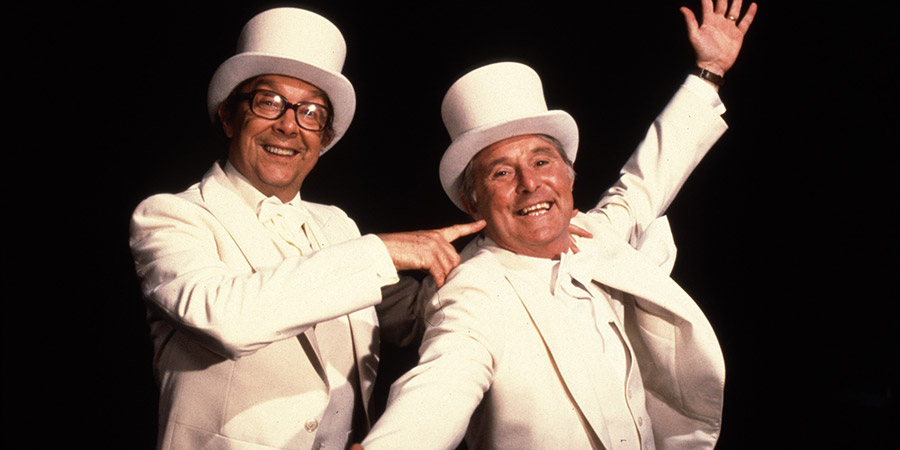
They returned to the theatre circuit, rebuilt their confidence, started taking more responsibility for the standard of their material, and began, once again, to win over their critics. They changed agents - moving to the far more influential and well-connected Billy Marsh (who was tied professionally to Bernard Delfont and Lew and Leslie Grade), and started getting booked again for spots on TV.
They looked for and found the kind of writers who were able and willing to tailor material expressly for them rather than simply handing them random off-the-peg items - first Johnny Speight, then Dick Hills and Sid Green, and then later on, for the perfect fit, Eddie Braben - and, from the early Sixties onwards, on ITV and then back at the BBC, they returned to the box in the corner, but this time they made it their own.
As comebacks go, as fightbacks go, theirs was strikingly, gloriously, inspirationally complete. They drove the darkness away and brought the sunshine in its place, as they went from being considered superfluous to British television to being regarded as essential to it. Once dismissed as 'too northern,' they became the nation's favourites.
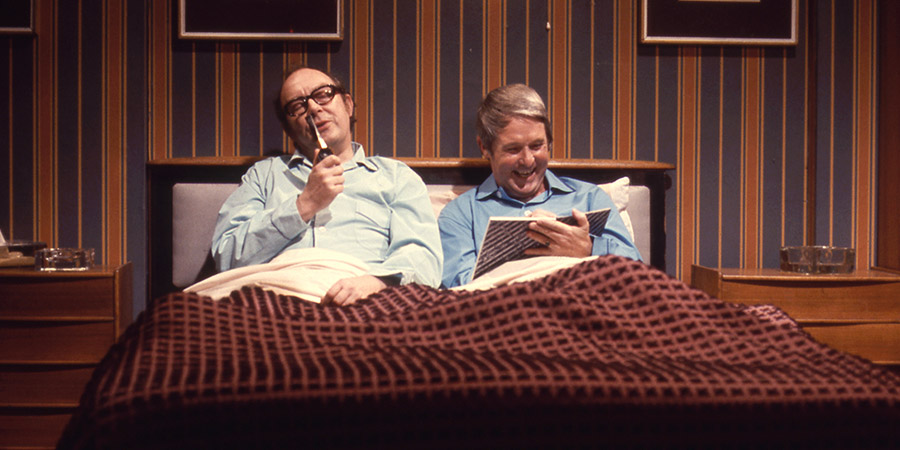
Part of what drove them on to reach such heady heights, however, was the abiding memory of what they had gone through with Running Wild. Eric, in particular, would never quite get over that put-down in The People, keeping the yellowing cutting of it inside his wallet for the rest of his life. The one small cloud in an otherwise bright blue sky, it was something to keep an eye on, to make sure it stayed where it was, deep in the distance.
It was what kept both of them down to earth, what kept them wary of embracing all the praise, and what kept them obsessed with proving the claim wrong - again and again and again. The great are easy to respect, but what makes them easy to love is that hint of vulnerability which reminds us that they, too, are human, and, as a consequence, we can identify with them rather than just idolise them.
Running Wild, in the end, gave that gift to Morecambe & Wise. It did not just make them stronger; it made them more admirable, too.
Help British comedy by becoming a BCG Supporter. Donate and join us in preserving, amplifying and investing in comedy of all forms, from the grass roots up. Advertising doesn't cover our costs, so every single donation matters and is put to good use. Thank you.
Love comedy? Find out more
